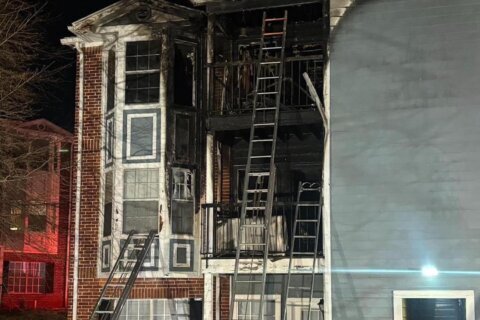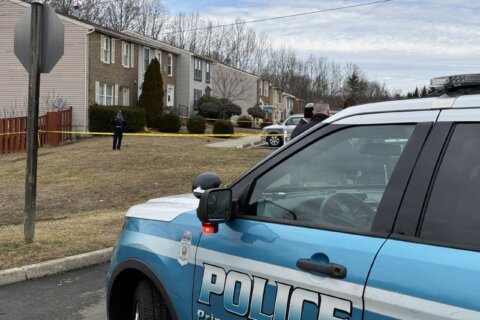This article was republished with permission from WTOP’s news partner InsideNoVa.com. Sign up for InsideNoVa.com’s free email subscription today.
This article was written by WTOP’s news partner InsideNoVa.com and republished with permission. Sign up for InsideNoVa.com’s free email subscription today.
Time is running out for Prince William County Public Schools to reach a contract agreement with its new employees union, and negotiators from the Prince William Education Association say the school division isn’t showing enough urgency.
Under the School Board’s resolution governing the school system’s new collective bargaining process, if the two sides fail to reach agreement on contract items by the end of September, either can declare an impasse and send the negotiations into non-binding arbitration. From there, the arbitrator and the sides will have just two more months to finalize an agreement before all remaining items go to the School Board for final say, an outcome that the union says would drive some teachers out of the county.
Bargaining teams from both the association and school division have been meeting on and off since April, but only three in-person bargaining sessions are scheduled between now and October, and both sides tell InsideNoVa that the big sticking points – wages, benefits, planning time and non-contract work – have barely been broached.
“We still have a majority of the contract left to negotiate and we’re quickly running out of time to do it,” said Jerod Gay, a Hampton Middle School teacher who’s on leave to work full-time as a member of the union’s bargaining team. “The tone of the division’s bargaining team, it’s been pretty clear throughout … that they don’t take our bargaining team seriously.”
To make up for lost time, Gay said, the union proposed adding virtual bargaining sessions during the summer break when negotiations paused, but the division’s negotiators rebuffed. And, according to Gay, the division’s only response to the union’s proposals on pay has been to ask for an estimate on the cost to the division.
“We basically said, ‘We’re not doing your homework for you,’” Gay said.
The process is new for both the school division and the association, which won election to represent both state-certified and classified employees in February, making it the biggest public sector bargaining representative in the commonwealth.
‘He-said, she-said’
School Board Chair Babur Lateef, who’s been getting regular reports from the division’s negotiators, said it’s the union who’s been holding up the process.
The association’s first offering on pay and benefits didn’t come until last week. Gay said that that was dictated by the natural progression of the negotiations after other issues were detailed and even slightly ahead of schedule. But Lateef said the division was expecting the union’s asks back in the spring.
“Last week was the first time that PWEA brought any requests for wage and benefits to the school division,” Lateef said. “We were expecting to receive wage and benefit requests last spring but they never provided any … We’ve been waiting for PWEA to present their terms. The first time they presented any set of terms that benefited the employees was last Tuesday. The thing is, if I’m an employee, I’d be wondering what the union has been doing so far. And they didn’t submit anything until the final deadline.”
According to Lateef, the union negotiators spent the first bargaining sessions asking for the division to reinstate retirement payments on behalf of the PWEA’s president, who traditionally takes leave from teaching work. Lateef said that the Virginia attorney general’s office told them years ago that they could no longer do that, but that the first 4-8 hours of negotiations this spring were used to demand that those payments be reinstated.
Hansford herself did not respond to a request for comment, but PWEA attorney Broderick Dunn pointed out that several issues were discussed during the sessions, and that one of them was the union’s proposal to give all employees either in-person or live-stream viewing access to the negotiations. According to Dunn, the division rejected that proposal.
“I am not interested in getting into a he-said, she-said back and forth with the division because I don’t think it’s fair to the students, the employees or the taxpayers,” Dunn said. “I don’t believe that what they said is accurate simply because we discussed a number of things in the first bargaining sessions, one of which was open bargaining … PWEA believes that sunlight is the best disinfectant and if we did have open bargaining, then the public could see what was being discussed and when.”
Gay called Lateef’s assertion that early bargaining sessions were spent on the association president’s retirement fund “untrue,” saying that issues related to Virginia Retirement System payments for association officers on the leave from the division didn’t arise until later in the process.
Sticking points
Coming into the negotiations, even the list of non-pay-related issues where teachers wanted to see changes was long. Educators said that as the division’s staffing shortages worsened, they were increasingly needed for work outside of contract hours, something the union wants additional pay for. Teachers also said that their planning periods were constantly being taken up with other duties, so the union is negotiating to curtail those.
Gay said they’re also asking for elementary teachers to be guaranteed the same number of planning periods as middle and high school teachers.
“Basically just making sure that all work is compensated and compensated fairly,” Gay told InsideNoVa.
Lateef said he doesn’t know what the process will look like if the two sides can’t reach agreement on important items by the Dec. 1 deadline.
“We’re new at this, I don’t have the answers,” Lateef said. “If we don’t come to a conclusion, a negotiation or a contract that we both agree on, we go to mediation … If mediation doesn’t work, then I’m not sure what’s going to happen at that point. The School Board will have to make a call on that. But as of now, the school division is working with them and we’ve been working in very good faith with them.”
But Gay said it could be the “straw that breaks the camel’s back” for a lot of employees.
“I personally have had many, many staff members tell me that getting some of these issues resolved and getting our working conditions and pay improved through collective bargaining are the only hope [they’re] holding on to that things will get better,” Gay said.







